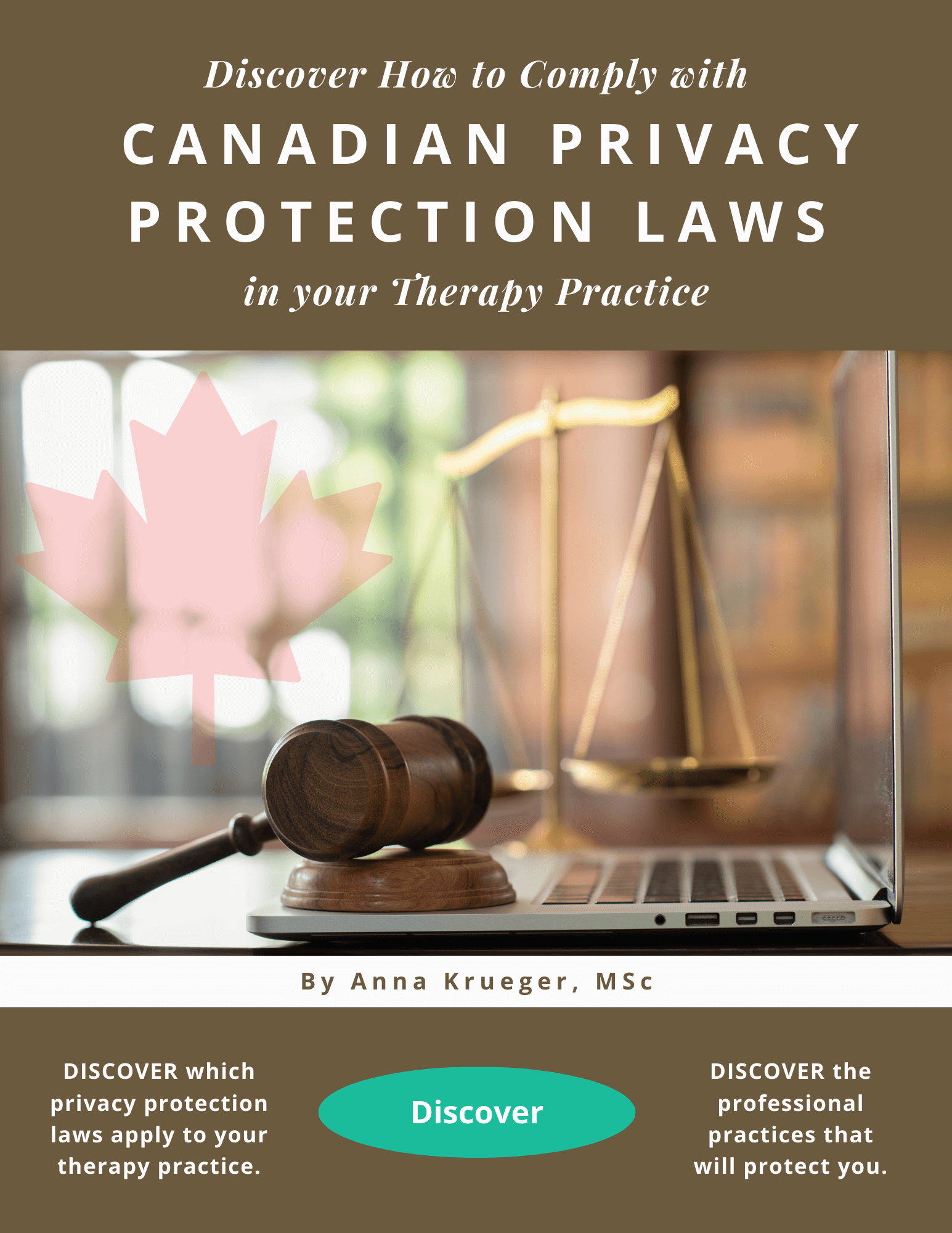
I Became a Resentful Employee
I'm Anna Krueger from Therapy Biztech. That's a picture of me a few years ago, when I was a private practice speech language pathologist.
Perhaps you are not receptive to private practice. You might be thinking, "Hey Anna, I just want a regular job where I'm respected. More than anything else, I'm just hoping to find a less toxic work environment. I have bills to pay so don't talk to me about spending money foolishly on training that I don't want."
Perhaps you want a small private practice that gives you a professional income.
"I don't want subcontractors. I would love to have a lucrative income stream that is somehow automated. I have ideas but I don't know how to make them a reality."
I am here to tell you how I did it. I spent many years feeling disappointed in my career choice of speech language pathology because of my experiences as an employee in public jobs.
I Wanted a Public Job
When I graduated as a speech language pathologist, I dreamt of having a publicly funded job. I'm talking about a job in a school district, or a hospital, or a health unit. I wanted to be an employee with job security and health insurance benefits.
I knew that publicly funded jobs create the standard of what therapists should earn. It is not just the hourly pay. It's the total yearly salary, the vacation benefits and the retirement package. I wanted a reliable professional salary.
Moving to a small town to get that type of position was out of the question. My husband's job kept us in Vancouver, a large city. We had a toddler who needed my attention. Putting her in full-time daycare didn't appeal to me.
Consequently, I spent many years working as a casual employee. You may be aware that casual employees don't generate seniority. Only permanent positions offer that important advantage.
I covered for therapists who were on maternity leave. I loved reading the confidential case files. I could see the clinical notes as well as the formal reports. These positions taught me all about my scope of practice and how to do assessments and therapy. The jobs had high clinical standards. There was enough time in my day to serve my caseload well. It was fulfilling to be a clinical professional in these settings.
"Obviously, that was a long time ago. The situation in public jobs in Canada is bleak now," you might argue.
Yes, nevertheless the point I want to make is...
Here in Canada, publicly funded jobs provide the standard for the scope of practice for the profession. Employees are paid for all the support activities required for the job, not just for the client-contact hours.
There Were Not Enough Public Jobs
I felt sad when each position came to an end. The regular employee would be back from maternity leave and I would be out of work again. It didn't matter how well-written my assessments were or how effective my therapy programs had been. My relationships with clients, families and colleagues all came to an abrupt halt. I had to shake off my disappointment and apply for the next opening.
As a casual employee working in a union environment, I was not building up seniority. On a few occasions, I did manage to get permanent part-time positions but even these ended suddenly due to budget cuts. I was always the first one to be laid off. During a five year period, I held seven different positions.
After many years of struggle, I felt so frustrated by the limited opportunities for stable employment as a speech language pathologist. There were not enough public jobs in speech language pathology.
Maybe the same is true of your profession.
Has being an employee with a reliable salary been your dream? Does the downside of leaving your community make that less desirable? Have you have tried to break into a union environment as a casual employee? Have you left a public job because of stress or resentment?
"I feel so discouraged," you might be saying to friends and family.
You are not alone. I know your struggle is real. There are major differences between working as an employee, a contractor or an entrepreneur. I have done all three over the course of my career.
Read more about the three career paths for therapists HERE.
Free 30-Minute Workshop for Private Practice Therapists!
- Discover the three biggest website mistakes made by private practice therapists
- Walk away with an understanding of the changes you need to make to your website
- Feel confident about being an entrepreneur, finally having a vision for a strategic website that will help you build your therapy practice
"After this workshop, I finally started thinking about the FUNCTION of my website, not just the look."
More of...
- Referrals
- Confidence
- Ease & Balance
Less of...
- Inefficiency
- Frustration
- Low Income


Therapists can choose to work as employees, contractors or entrepreneurs in private practice. I have done all three. My decisions were guided by what my family needed at that time.
Read more...
Display professionalism when you are billing for your therapy services.
Q: Should therapists charge less for telepractice sessions than they do for same-location sessions?
Don't use two different rates for your time. There is a risk that telepractice service delivery will be devalued if we charge less for telepractice sessions than same-location sessions. Your time is your time.
Be loyal to your telepractice colleagues. You might find that telepractice limits your ability to do assessments and therapy the old way. You might feel that it is not as good as being in the same location. Be careful. This is only your experience so far. It is a steep learning curve and others are further along. Your colleagues might be experiencing unprecedented success as telepractice professionals.
Let me emphasize that concept again. You are billing for your time in offering clinical services. Don’t use two different rates.
Q: Should I ask funders to give consent for telepractice service delivery?
Insurance companies and funding agencies require your dates of service, your hourly rate and the length of your session. Most of them want to see the words “assessment” or “therapy” on the invoice.
In my opinion, there should be no requirement to specify if the session was delivered by telepractice. Imagine how silly it would seem to ask a funder for permission to provide services at a small blue table. I believe that in the future telepractice will be recognized as a normal type of service delivery. It won’t be seen as something that requires consent from a funding source. I should add the disclaimer that this not necessarily how insurance companies and funders are currently responding.
Q: Should I bill for software licenses that I am using in therapy?
No, the software that you need for your clinical caseload is your expense. Most funders have no interest in reimbursing you or your client for software. Furthermore, it conveys a lack of professionalism to ask for funding for any kind of supplies or expenses. I came to this conclusion early in my career, when I billed a client for a long-distance call. The client laughed at me.
Don’t add unnecessary details to your invoices. Just set your hourly rate high enough to cover your expenses. I used the generic description “speech language therapy services” on all my invoices. I paid for online licenses and shipped commercial therapy products to clients at my expense. I encourage you to define your services as therapy, not software or product sales.
Q: Should I bill for asynchronous services?
Yes. ASHA’s definition of telepractice is a brilliant, future-proof definition. Synchronous service is easy to comprehend. Your client is in attendance. Take a moment to reflect on services that you provide that are asynchronous or a hybrid. Do you bill for time the time you spend looking at user generated data on a server? Traditionally, therapists would call this “monitoring.”
Do you bill for assessments and progress reports that are generated by software? You should. Those reports guide your therapeutic process.
How we communicate with funders will shape the future. Let me say it one more time, your time is your time! Don't devalue the asynchronous methods that help your clients reach their goals. As a telepractice professional, your clinical services will look different than they did in the past. Embrace this concept and teach others to embrace it.
Free 30-Minute Workshop for Private Practice Therapists!
- Discover the three biggest website mistakes made by private practice therapists
- Walk away with an understanding of the changes you need to make to your website
- Feel confident about being an entrepreneur, finally having a vision for a strategic website that will help you build your therapy practice
"After this workshop, I finally started thinking about the FUNCTION of my website, not just the look."
More of...
- Referrals
- Confidence
- Ease & Balance
Less of...
- Inefficiency
- Frustration
- Low Income









